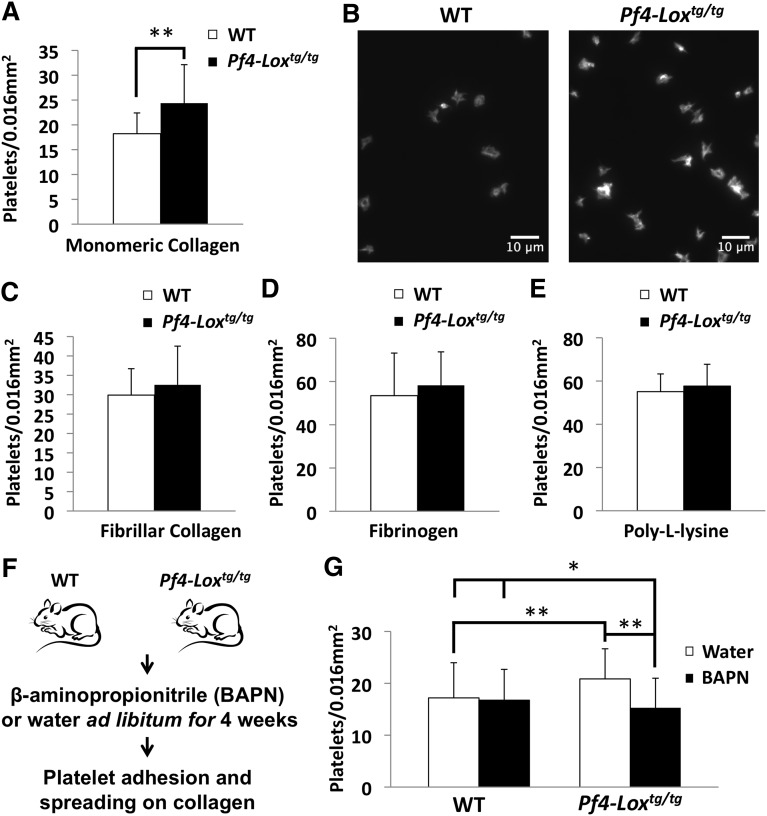Figure 4.
Platelets from Pf4-Loxtg/tg mice have enhanced adhesion and spreading to monomeric collagen. (A) Platelet adhesion and spreading assay of WT and Pf4-Loxtg/tg platelets (15-week-old male mice, n = 4 per group) to monomeric collagen. **P < .001. (B) Representative image of platelet adhesion and spreading assay on monomeric collagen. (C-E) Platelet adhesion and spreading assay of WT and Pf4-Loxtg/tg platelets (15-week-old male mice, n = 4 per group) to fibrillar collagen (C), fibrinogen (D), and poly-l-lysine (E). Data in panels A,C-E are representative results of 3 independent experiments. Similar results were observed in female mice. Data represent the average ± SD of platelet counts of 25 fields per animal, except for poly-l-lysine, in which 5 fields were counted. (F) WT and Pf4-Loxtg/tg mice were pretreated with the LOX inhibitor BAPN or water before platelet adhesion and spreading assay on monomeric collagen (n = 4 for WT and Pf4-Loxtg/tg water-treated groups, n = 5 for the BAPN-treated Pf4-Loxtg/tg group, and n = 6 for the BAPN-treated WT group; all mice were 14- to 15-week-old females at the start of BAPN treatment). (G) Data represent the average ± SD of platelet counts of 25 fields per animal. *P < .05, **P < .001. No statistically significant difference was observed in WT animals treated with water or BAPN, whereas BAPN treatment reduced the upregulated platelet adhesion observed in LOX-expressing platelets compared with WT (P < .001).

